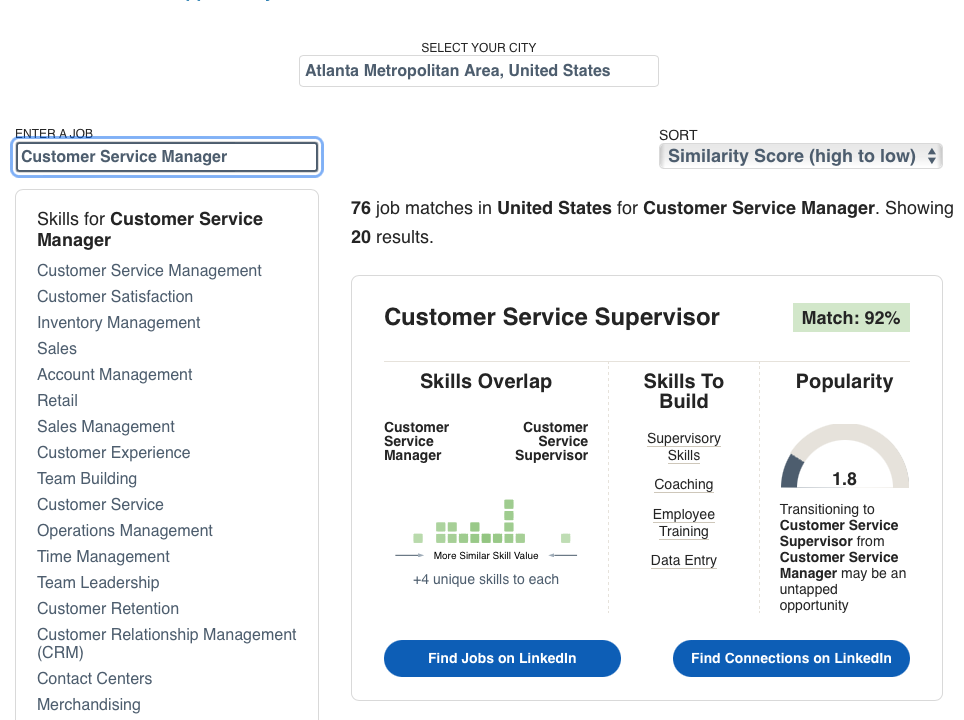Getting your first shot at a leadership position can be tough.
I regularly get questions from Customer Service Tip of the Week subscribers about getting promoted. Some are angling for an internal promotion. Others are looking for a role in a new company.
My job once involved helping people advance in their careers, so saw first-hand what works and what doesn’t. I also reached out to other customer service leaders for some additional perspective.
Here are the top three things that can help you earn that promotion.
Step 1: Be a role model
You have to demonstrate the ability to deliver exceptional customer service if you want to become a customer service leader.
Not just good, really good. On-brand, front page of the company website good.
Being a role model involves demonstrating the right way to do things while earning the respect of your peers. Customer service leaders tell me this is a big factor when considering someone for promotion.
Stephanie, a hotel general manager, asks aspiring leaders, "Are you well respected among your peers since you will become their leader?" This is an important consideration because getting a promotion frequently means your coworkers are now your subordinates.
Murphy, a support department supervisor, looks for "Someone who peers gravitate to naturally as a resource." This suggests that coworkers already view you as a leader.
Nate, a customer experience director, echoed this sentiment. Nate told me that he recently promoted a frontline employee. "The one quality that stood above all others was his ability to motivate and inspire his peers."
An easy way to build your skills is to subscribe to the Customer Service Tip of the Week. It’s one tip, via email, once per week. It’s rated one of the best customer service training programs in the world, even though it’s totally free.
You can subscribe here.
If you have access to LinkedIn Learning, I recommend taking the Innovative Customer Service Techniques course. Here’s a quick preview:
Step 2: Do a skills gap analysis
Look at the skills required for the job you want and compare them to the skills you already have. The difference between the two is your skill gap.
This analysis will help you identify skills you'll need to develop to be a strong candidate for the new position. Be honest in your assessment. The standard should be, "Can I prove I have this skill to an interviewer?"
Michael Pace, a customer service consultant, shared this advice on his blog:
"Find out what are the technical skills your manager does today. Offer to help them next time they need to accomplish a like task. Create a personal development action plan. If you are promoted, you may need to use this skill on day 1."
Many customer service professionals have used training videos on LinkedIn Learning to help develop their skills. For example, there's an entire series of courses devoted to becoming a customer service manager.
LinkedIn also has a great career explorer tool that allows you to search for new jobs with the skills you already have. It can also help you identify additional skills to build.
One word of caution here.
Any training you do should be used immediately. That's because training is a use it or lose it proposition. If you take a class, but don't put the content to work, you'll quickly forget what you've learned.
Step 3: Add value
Many employees make the mistake of asking for a promotion because they think they’ve put in their time.
People get promoted because the hiring manager thinks you can add value. A leadership position is not a prize to be won through years of service. It's something that's earned.
Here’s the easiest way I know how to do this:
Identify your company’s (and boss’s) top priorities.
Actively work to help your company and your boss succeed.
Sallie, a customer operations director, looks for people who are "Humble, hungry, and smart." These are people who demonstrate a passion for leadership, and can find ways to make things better.
Murphy described the ideal candidate as someone who "raises solutions to problems" as opposed to just identifying problems.
It’s a lot easier to get promoted if you make your boss look good.
Conclusion
These three steps will make it easier to get promoted, but there’s one more thing you should do: ask.
Tell your boss, HR rep, or a mentor about your ambitions.
Ask for their advice on how to get promoted.
People might assume you’re happy staying where you are if you never ask.
I'm rooting for you to land that big promotion, but I also want to know what works for you. Please drop me a line if you follow any of this advice.
And if you do get promoted, here's my advice for new customer service leaders.



